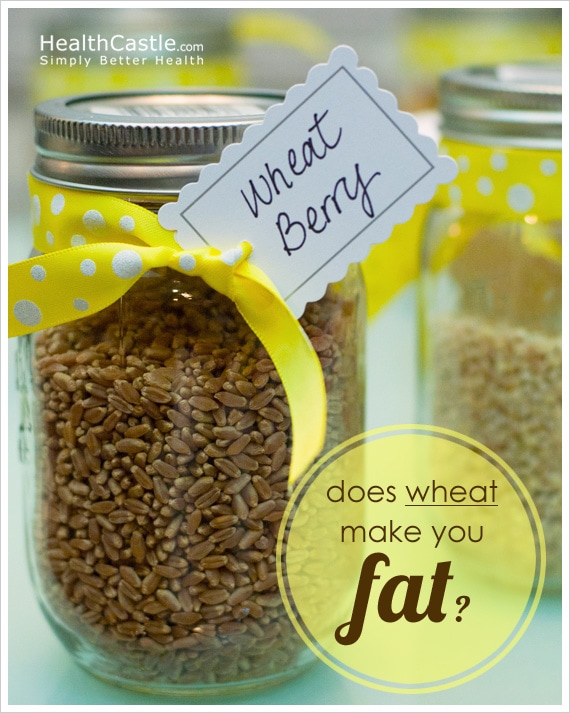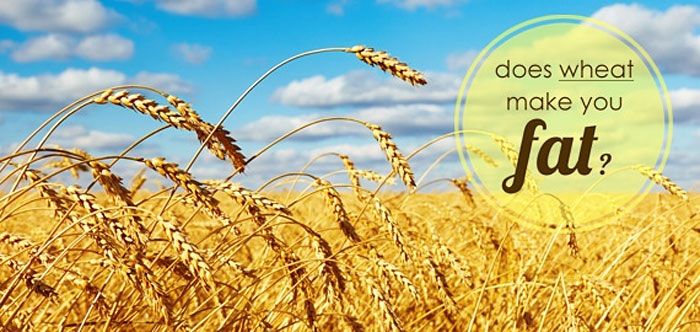
Written By: Gloria Tsang, RD
Title: Founding Registered Dietitian
Alumni: University of British Columbia
Last Updated on:

People often ask me if they should go vegan, low-carb, dairy-free, gluten-free, and so on to help lose weight. My simple answer to these questions is always no.
So, does wheat make you fat? Quite simply, no.
Do carbs make you fat? No.
Does meat make you fat? No.
Does dairy make you fat? No.

Table of Contents
I have not seen any studies that support a gluten-free or wheat-free diet as a weight-loss diet. Gluten-free eating is important for those who suffer from celiac disease – and indeed some people may suffer from this disease who have not been diagnosed. But even for those with gluten intolerance, gluten-free eating is not a weight-loss diet. In fact, once someone suffering from celiac disease begins a gluten-free diet, that person might actually gain weight as their gut heals.

I wanted to get input from a gluten-free specialist, so I asked Shelley Case for her take. Shelley is a dietitian, the author of Gluten-Free Diet, and a member of the Scientific Advisory Council of the Healthy Grains Institute. She says that initial weight loss at the start of a gluten-free diet is often due to the elimination of “coffee companion” treats such as muffins, cookies, and brownies, which are suddenly off-limits. New gluten-free eaters may eat fresh fruits or veggies as snacks instead. So the pounds lost are the result of the healthier, lower-calorie snack choices, not simply the elimination of wheat.
There’s a misconception out there that wheat has been modified in some new ways that make it unhealthy and contribute to weight gain. But this is just not true. The wheat we have today is certainly different from the original wild wheat used thousands of years ago. But all the plants we use for food today have been selectively bred over time to create different varieties. “Just like we have different varieties of apples, wine, and grapes, there are different varieties of wheat,” says Case, who also works with the Grains Food Foundation.
Wheat contains a variety of protein; one of which is gliadin. It’s not actually a new protein – gliadin is naturally present in wheat for centuries. The amount of protein in a wheat variety can vary naturally by 10-17% depending on the weather conditions during its growth period, such as the amount of rainfall and the temperature. In other word, gliadin was not an ingredient added artificially.
You may ask, why do we want wheat plants with high protein content? If you bake often, you will come across various flour for various applications. Some products, like pizza and strudels, require a strong dough and are often made with flour with higher protein content. On the contrary, cakes require softness and height in their end products and are often made with cake flour which has the lowest protein content.
Anyway, if you are interested to read more, here are a few resources:
There is a simple answer to why we are in the midst of an obesity crisis: overeating, especially overeating highly processed foods.
As I explain in my book, Go UnDiet: 50 Small Actions for Lasting Weight Loss, and just like I said at the beginning of this article, no one food is responsible for weight gain – not carbs, gluten, dairy, or meat. Instead, it’s all the highly processed foods we consume. Processed frozen fish sticks and chicken nuggets have many times more fat than natural fish filets or chicken tenders.
Think of it this way. For 300 calories, you could eat a lunch-sized 6-inch sub sandwich. Or, you could eat a candy bar or a bag of chips. The chips and candy bar might both be gluten-free – but they are certainly not healthier (or less fattening) than the sandwich!
Wheat is not what is making us fat. It is quite simply overeating that makes you fat – especially overeating highly processed foods. If you want to pick one “food group” to avoid in your quest to lose weight, choose to avoid these highly processed foods. Stick to natural, healthy foods, including whole grains like wheat, instead.
Alumni: University of British Columbia – Gloria Tsang is the author of 6 books and the founder of HealthCastle.com, the largest online nutrition network run by registered dietitians. Her work has appeared in major national publications, and she is a regularly featured nutrition expert for media outlets across the country. The Huffington Post named her one of its Top 20 Nutrition Experts on Twitter. Gloria’s articles have appeared on various media such as Reuters, NBC & ABC affiliates, The Chicago Sun-Times, Reader’s Digest Canada, iVillage and USA Today.
lose that weight, wheat, whole grains
Fiber 101: Soluble Fiber vs Insoluble Fiber (2013 Food List Update)